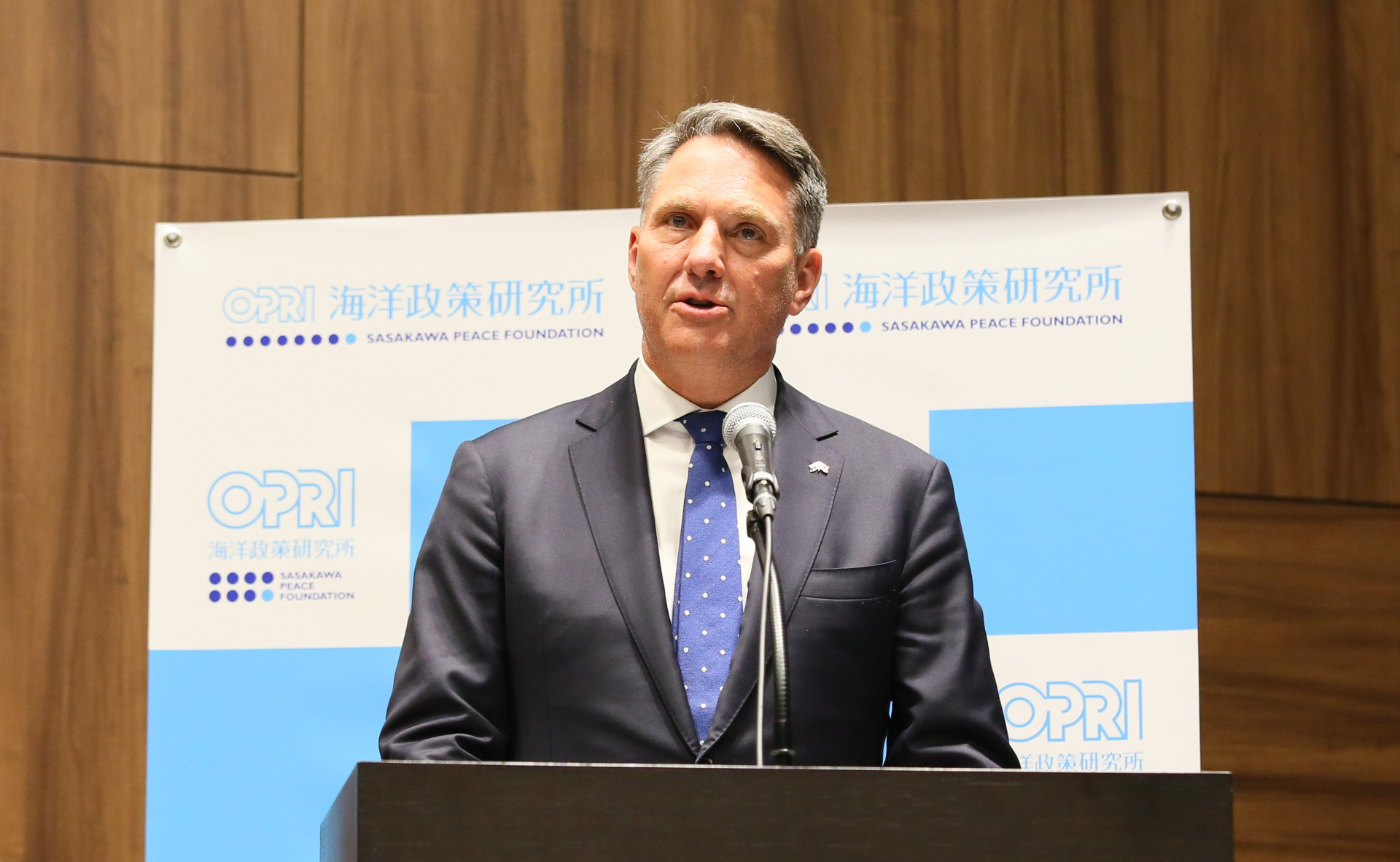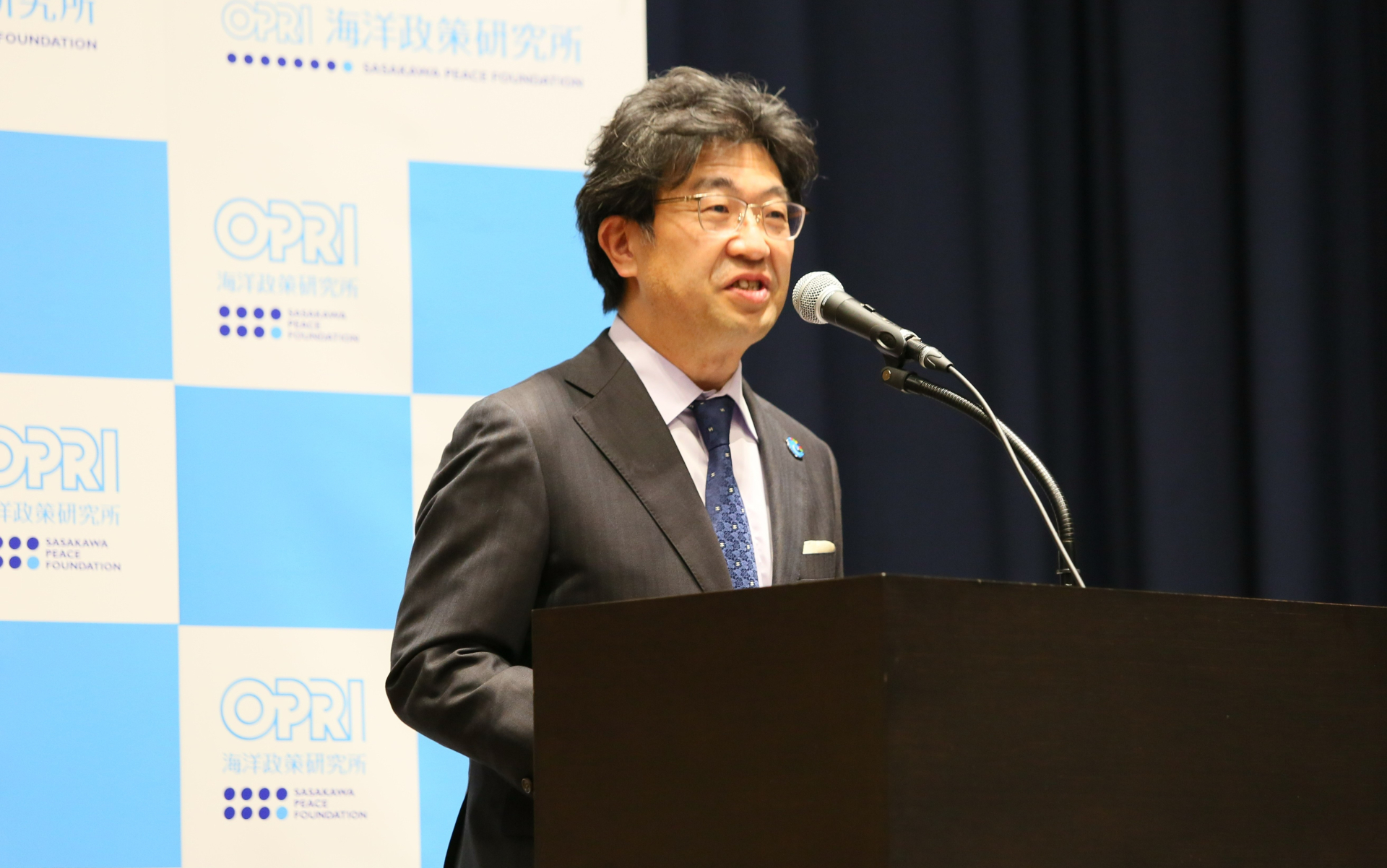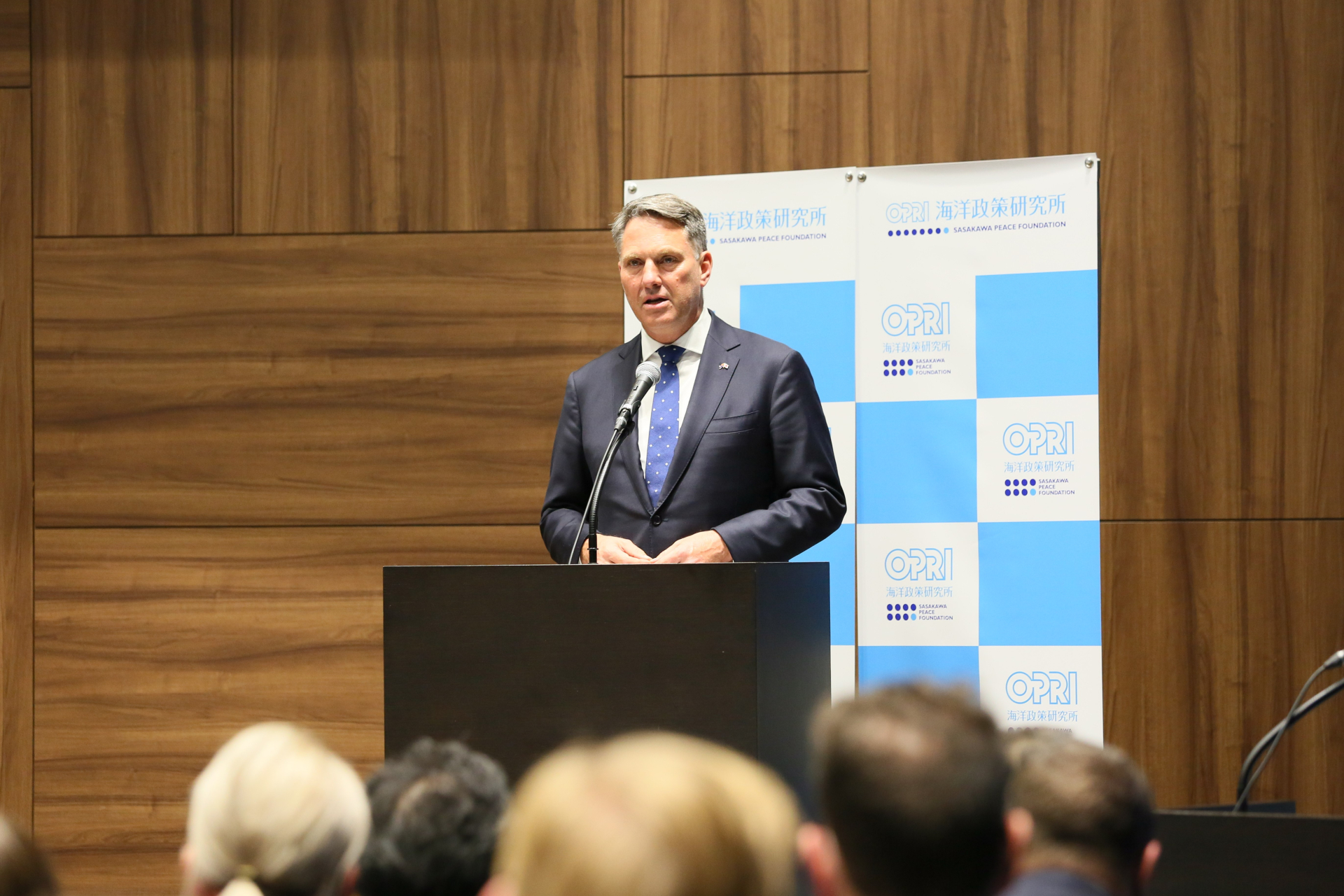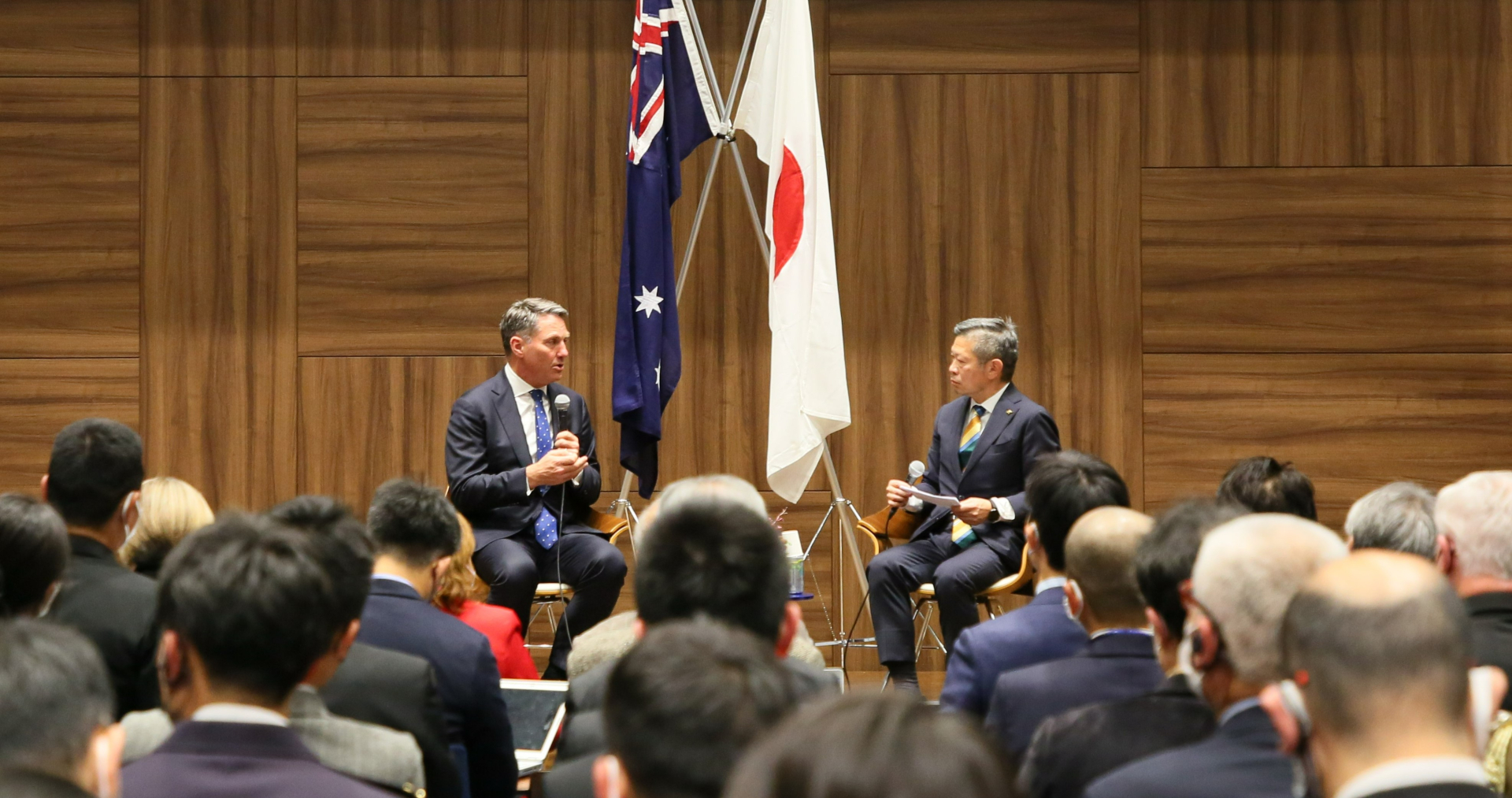Courtesy visit from Judge Tomas Heidar, President of the International Tribunal for the Law of the Sea (ITLOS)
On October 21, 2025, Judge Tomas Heidar, President of the International Tribunal for the Law of the Sea (ITLOS), visited the Sasakawa Peace Foundation (SPF) and exchanged views with Executive Director Nobukatsu Kanehara, Senior Fellow Atsuko Kanehara, and Executive Director Eiji Sakai.



